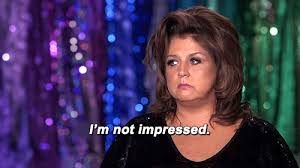“How’s the book you read for English?” my friend asked smilingly.
“It’s alright! It is pretty ambiguous, but it is unique.” I replied and smiled back. I wanted to say some more, but I wasn’t sure what to say. Everything I felt about Pierre suddenly felt ambiguous to me. Well, I liked it. Or do I? It wasn’t that hard to read. Or is it? So many scenes in the book rushed to my brain, and I was taken back to the very moment I began reading it.
With the excitement of reading a new book, I sat down at my desk, ready to binge-read a few books of the first nineteenth-century book I read. However, the first chapter quickly made me rethink about my plan. Lucy and Pierre’s conversation about love seemed nothing but ambiguous and abrupt. I told myself I could understand it by reading it again and I knew Pierre might be different from all the books I had read. I did not like Pierre at the beginning.
Just a superficial analysis of Pierre’s plot and writing style will show why it received an overwhelming amount of criticism. From calling his mother “sister” to marrying his unverified half-sister, Pierre’s moral is problematic. The disproportionate amount of narration on characters’ inner thoughts and philosophical debates, together with the book’s frequent references to the Bible and literature works such as Hamlet, easily confuses readers, making it difficult to appreciate every page.
In retrospect, Pierre is confusing to read, but is it actually that terrible?
To me, Pierre is unique in many ways. Unlike fictions that develop along a storyline centering on the protagonist, Pierre seems to be a “cinematic” book that imitates the style of a movie. In the first chapter, a hook of a scene expressing Lucy and Pierre’s mutual love is thrown to readers in the same way directors intrigue the audience with a clip at the beginning of movies. Then there’s a flashback to Pierre’s family background, resembling flashbacks in films. The book is divided into books, and multiple chapters comprise each book in a way like scenes in movies. The narration sometimes jumps from scene to scene, rapidly switching places and characters. For instance, in Book XVII, the first chapter is about Pierre telling Isabel his plan to depart for the city at Isabel’s place but the next chapter takes the audience to the mansion of Mrs. Glendinning. Although the narration style can leave readers confused at times, it facilitates storytelling to some extent.
Melville’s writing style does make Pierre difficult to read and comprehend, especially for foreign readers like myself. However, there are reasons to appreciate Pierre. Melville’s language is beautiful. Archaic English elements can be easily found in conversations between characters and techniques such as metaphor are used for rhetorical effects. Although Pierre is ambiguous, Melville tied the plot together with recurring elements such as Isabel’s guitar and the painting of Pierre’s father. Themes including love and morality underlie the entire book. Therefore, whether people appreciate Pierre or not, ambiguities in Pierre might be an art—they are what make it unique, just like Catcher in the Rye is distinctive due to J.D. Salinger’s colloquial and depressing writing style. Melville wrote the book in a long and ambiguous way that allowed him to include many ideas in a single book, such as criticizing the print media and expressing his feelings for the lukewarm reaction to Moby Dick.
When it comes to the art of ambiguities, ambiguity is central to making short films deep and memorable. The Eagleman Stag might be nothing more than a grey animation on first sight, but it reveals the cycle of life; Cargo might seem like a simple horror film, but it gives people insight into how time can be spent meaningfully… Admittedly, Pierre is ambiguous because it’s long rather than short. But the book’s short ending and pages of ethical debates do allow readers to think deeply.
After reading Pierre, I asked myself what rating I would give to this book that is distinct from everything I read before. It took me a while to come up with one. The difficulty of reading Pierre gave me the urge to rate it one star, the moral is two stars at best, the plot is three stars, the language is four stars, and its uniqueness as an ambiguous book maybe deserves a five star. Alright, I told myself, I would give it a three star—a perfect, truly ambiguous rating for Pierre, the first ambiguous book I read.







